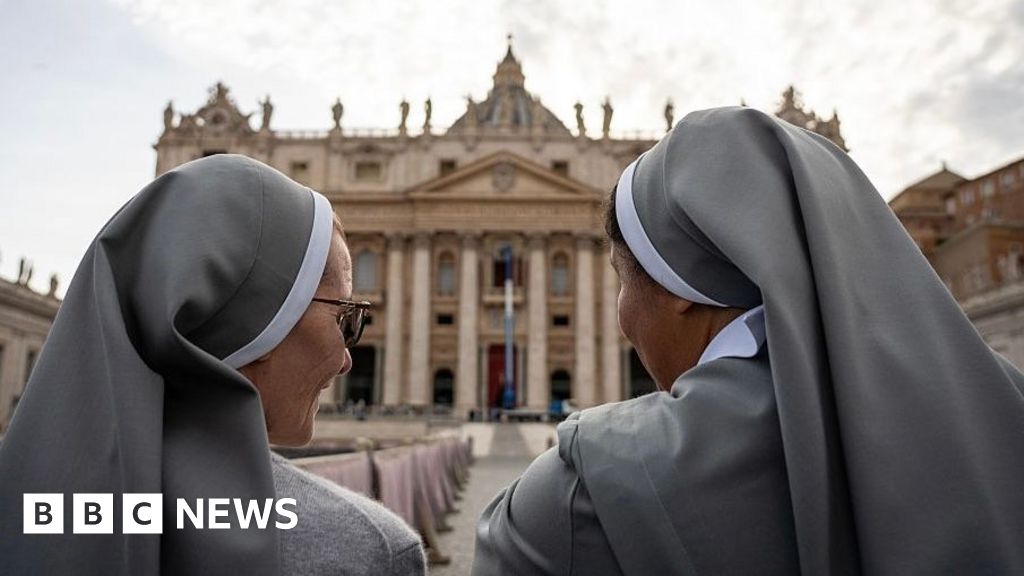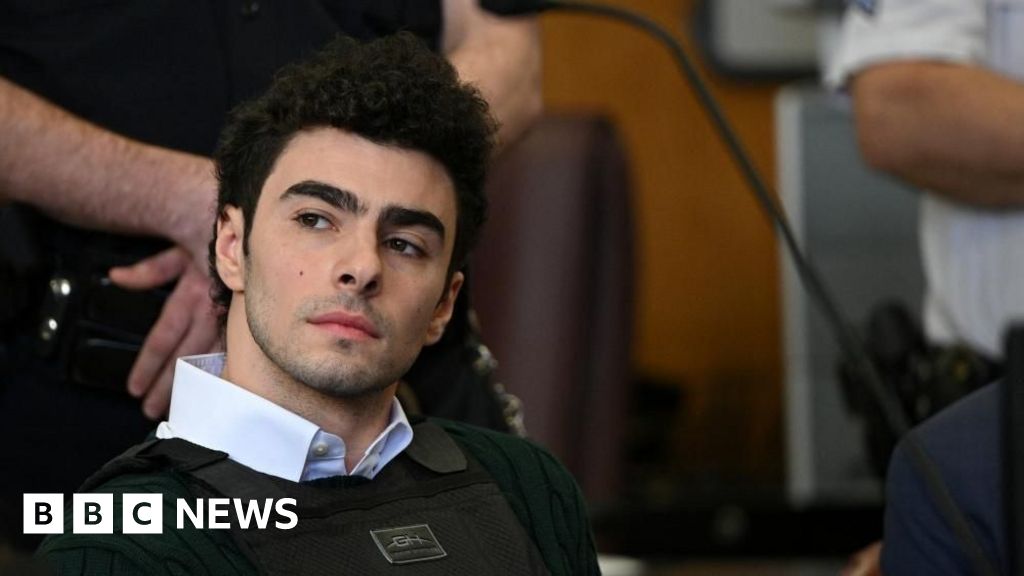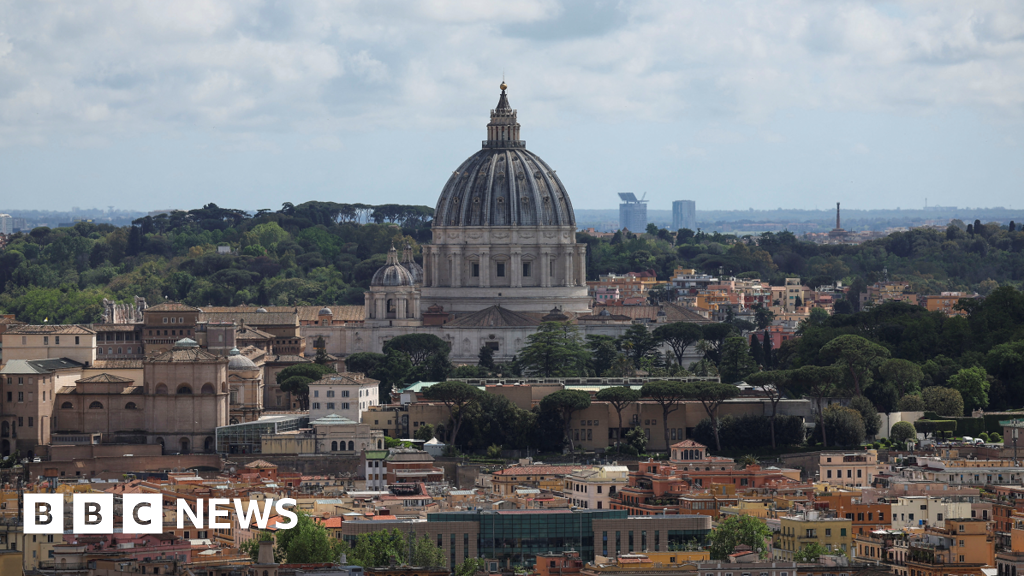ARTICLE AD BOX
Sebastian Usher
Correspondent
Reporting fromJerusalem
The office of the Israeli Prime Minister Benjamin Netanyahu has offered its condolences for Pope Francis, four days after his death.
An earlier offer of condolences posted on social media by the official state account of Israel had previously been deleted, causing considerable controversy within the country.
Israel is also sending a relatively low-level delegation to the late pontiff's funeral on Saturday, with only the country's Vatican ambassador in attendance.
All of this has been seen in Israel and elsewhere as a sign of the Israeli government's displeasure with Pope Francis's impassioned remarks on the war in Gaza.
Belatedly and somewhat impersonally, the Israeli prime minister's office issued a two sentence offer of condolences on Thursday night.
It read: "The State of Israel expresses its deepest condolences to the Catholic Church and the Catholic community worldwide at the passing of Pope Francis. May he rest in peace."
The tone of the original message tweeted by the verified @Israel account on X on the day of the Pope's death was noticeably warmer.
It featured a photo of Pope Francis at the Western Wall in Jerusalem and concluded: "May his memory be a blessing."
But it was swiftly withdrawn, without explanation.
Several Israeli media outlets reported on it being deleted, with the Jerusalem Post quoting officials at the foreign ministry saying that it had been posted in "error".
The Jerusalem Post also quoted Israel's former ambassador to the Vatican, Raphael Schutz, describing the decision to delete the published statement as a mistake.
In the face of such criticism, Israeli officials did point out that the country's current ambassador to the Vatican had offered his condolences in person.
And it is the ambassador, Yaron Sideman, who will represent Israel at the funeral of Pope Francis.
This is in marked contrast to the heads of state or government who will be attending from most major nations, including US President Donald Trump.
It is also very different from the funeral of the last pope to die while still in office - that of John Paul II in 2005. Israel sent the then-president, Moshe Katsav, and the then-foreign minister, Silvan Shalom, to attend the ceremony.
The current Israeli President, Isaac Herzog, did publish an eloquent and heartfelt tribute to Pope Francis in the hours after his death, describing him as a man of deep faith and boundless compassion.
But there appear to be no plans for him to attend the funeral. No reason has been given, although it may have something to do with the funeral taking place on Shabbat, the Jewish Sabbath.
But it seems clear that the Israeli government's resentment of Pope Francis's expressions of solidarity with the Palestinians, especially during the war in Gaza, has soured its response to his death.
Last November, Pope Francis suggested that the international community should examine whether Israel's military offensive in Gaza should be classed as genocide – an allegation Israel has vehemently denied.
Earlier this year, he called the humanitarian situation in Gaza "shameful".
In his very last public address on Easter Sunday - the day before his death - there was mention of Gaza once again. His address spoke of the suffering of both the Palestinians and the Israelis.
Since his death, more details have emerged of how Pope Francis would be in contact almost daily with the small Christian community sheltering in a church in Gaza City during the war.
Palestinians have spoken warmly of how much his expressions of empathy had given them hope.
As a sign of how highly they respected the Pope, the Palestinian Authority is sending Prime Minister Mohammad Mustafa to the funeral.
All this has meant that some in Israel, especially among the coalition of religious and nationalist parties that buoy up Netanyahu's coalition, believe that Pope Francis had taken the side of the Palestinians, despite his expressions of sympathy for Israelis and his efforts at bolstering multi-faith dialogue.
That sense of a rift between the current Israeli government and the Vatican may well be visible at the Pope's funeral in Rome, where Israel's leaders will be noticeable by their absence.

 3 hours ago
3
3 hours ago
3








 English (US) ·
English (US) ·